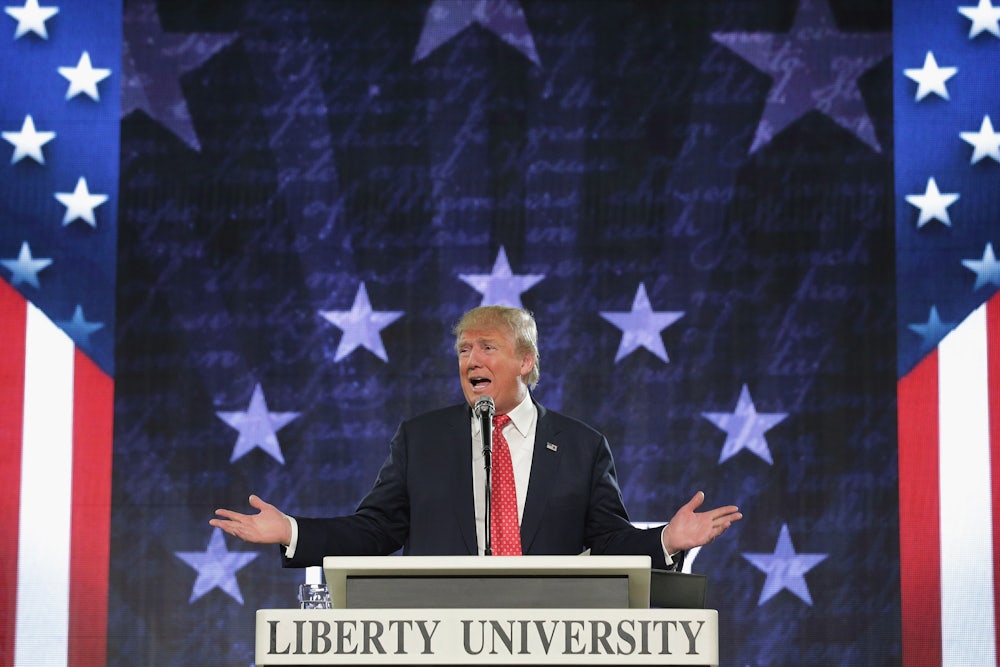A restriction on church endorsements of political candidates will survive the Republican tax bill, The Hill reported on Friday, thanks to a Senate parliamentarian ruling that it did not qualify as a budget-related provision. Killing the Johnson Amendment has been a priority for the Christian right, which claims it unfairly restricts their freedom of speech. Jerry Falwell Jr., one of Trump’s earliest evangelical supporters, said in April that the provision is “a club” used “to silence conservatives.” From The Roanoke Times:
“[Trump’s] just sticking to his word on every single promise that he made. [The Johnson Amendment] was something he talked about when he visited Liberty a little over a year ago. When he first heard about it, he couldn’t believe that there was a restriction on free speech in the United States,” Falwell said.
However, the Johnson Amendment doesn’t prohibit clergy from preaching politics; it prohibits them from using their pulpits to endorse candidates. And it’s not much of a club. The IRS has only audited one clergyperson for violating the provision—despite receiving a number of complaints about potential violations every year.
It’s also an extremely popular restriction. According to a 2017 poll from Independent Sector, 72 percent of all voters support keeping the Johnson Amendment in place; 66 percent of all self-identified Trump voters agree. Nevertheless, it has come to occupy a starring role in the Christian right’s agenda, and it’s likely that evangelicals like Falwell put the bug in Trump’s ear.
